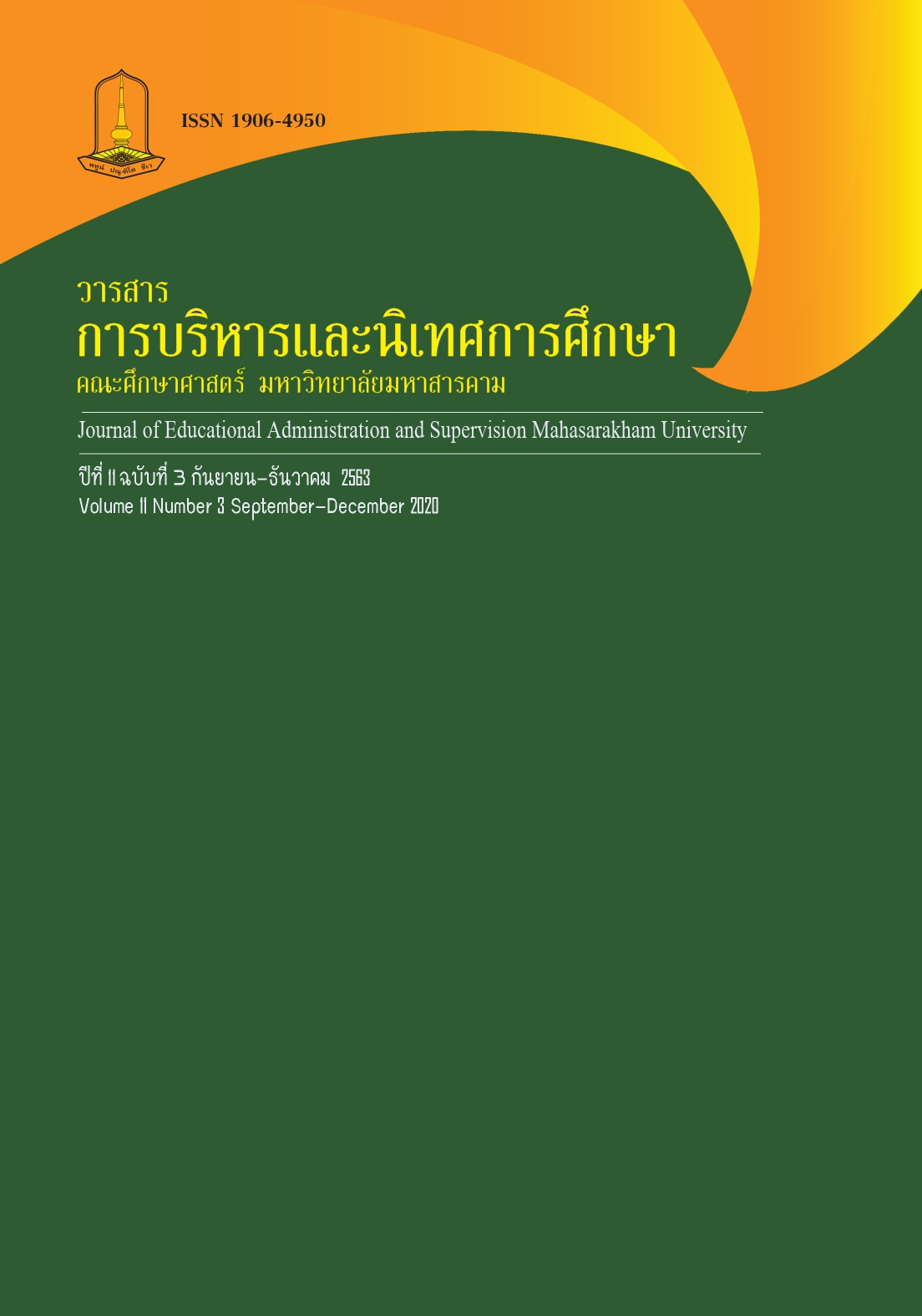Approaches for Teacher Development of Islamic College of Thailand Based on The Concept of Teacher’s Participation
Main Article Content
Abstract
The objectives of this study were 1) to study the current state and the desirable state of teacher development of Islamic College of Thailand based on the concept of teacher’s participation and 2) to propose approaches for teacher development of Islamic College of Thailand based on the concept of teacher’s participation. This study employed the descriptive research. 93 respondents were the principal, vice-principals and teachers of Islamic College of Thailand. The research instruments were the questionnaires and appropriability and possibility of evaluation form. Statistics used for data analysis included frequency distribution, mean, standard deviation, percentage and modified priority needs index. The research findings were as follows: 1) the current state of teacher development of Islamic College of Thailand based on the concept of teacher’s participation were, overall, at moderate level. (x̄=2.59, S.D.=0.69) The desirable state of teacher development of Islamic College of Thailand based on the concept of teacher’s participation were, overall, at high level. (x̄=4.45, S.D.=0.51) When considering each aspect, the desirable state is higher than the current state in all aspects. The priority needs index of teacher development of Islamic College of Thailand based on the concept of teacher’s participation were the highest need being the participation in the solution (PNImodified=0.758), followed by the participation in thinking (PNImodified=0.728) and the work participation (PNImodified=0.682) respectively. 2) Approaches for teacher development of Islamic College of Thailand based on the concept of teacher’s participation were divided into 3 approaches (1) Developing teacher’s participation in problem solving through On the job Development consisted of 4 methods. (2) Developing teacher’s participation in thinking through On the job Development consisted of 3 methods. (3) Developing teacher’s participation in working through Blended Learning Development consisted of 3 methods.
Downloads
Article Details
References
Arets, J., Jennings, C. & Heijinen, V. (2016). 702010: towards 100% Performance. Maastricht, NL: Sutler Media.
Chamchoy, S., & Kulophas, D. (2018). Leadership in administration and educational quality assurance (2nd ed.). Bangkok: Chulalongkorn University Printing House. [in Thai] The Comptroller-General’s Department, Ministry of Finance. (2003). Internal Audit Guidelines. Bangkok: Internal Audit Group. [in Thai]
Keesukpan, E. (1984). General Education Administration Principles. Bangkok: Ongsilp. [in Thai]
Khammanee, T. (2014). The growth of learning to the turning point in Thailand. Retrieved February 6, 2019, from http://seminar.qlf.or.th/File/DownloadFile/615. [in Thai]
Mongkolvanich, J. (2013). Administration of Educational Organization and Personnel (2nd ed.). Bangkok: Chulalongkorn University Printing House. [in Thai]
Mullikaman, S. (2002). Constitution and public participation. Bangkok: Chulalongkorn University Printing House. [in Thai]
Office for National Education Standards and Quality Assessment. (2012). Student quality, target, assessment. Retrieved October 19, 2019, from http://blog.rmutp.ac.th/sukumal.w/2012/12/12. [in Thai]
Office for National Education Standards and Quality Assessment. (2013). Summary for the administrators of Islamic College of Thailand. (Copy). [in Thai]
Office of the Education Council. (2015). Learning reform to learner’s project 2014-2017 “Reflect problems and solutions Answering to Thai education reform”. Bangkok: 21 Century. [in Thai]
Office of the Permanent Secretary. (2018). Criteria for quality assurance of personnel training. Retrieved November 7, 2019, from http://www.pcni.moc.go.th/download/ Documents/2561/ฉบับสมบูรณ์.pdf [in Thai]
Schank, P.S. (1985). An Integrated Program for Effectiveness Organizational Change Within a School District Involving Stall Students, and Citizen Participation. Dissertation Abstracts International.
Teachers of Islamic College of Thailand. (2019). Focus group interviews: teacher development based on the concept of teacher’s participation. Bangkok: Islamic College of Thailand. [in Thai]
William, R. (1990). Participate and Technological Change in Mechanical Engineering. Dublin, Ireland.
Xupravati, P. (2018). Leadership in administration and educational quality assurance (2nd ed.). Bangkok: Chulalongkorn University Printing House. [in Thai]


